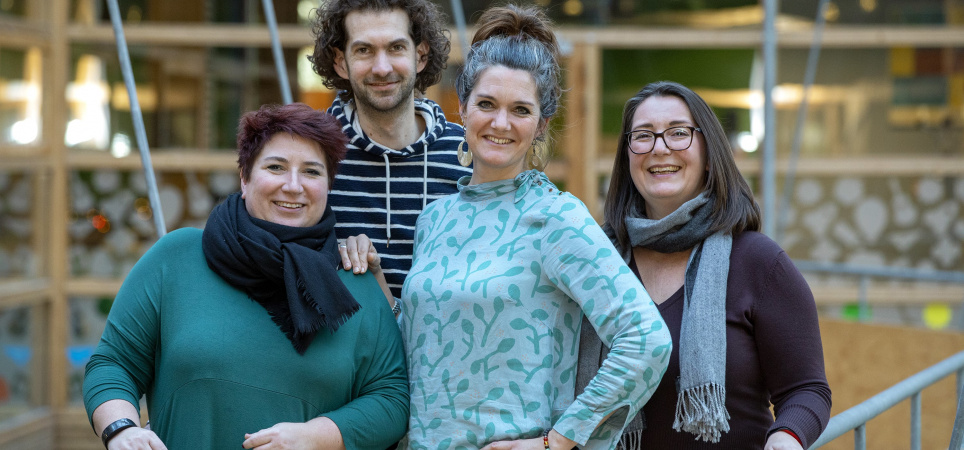Teacher shortage: Amsterdam school wants to eliminate frills
Focus on language, math and reading. Start from what the student really needs to learn and not primarily the method. And only test what you find useful - stop testing for the sake of testing. These are the main ideas at the brainstorming session of De Globe, one of the schools of the Westelijke Tuinsteden Amsterdam Foundation that is closed this week due to teacher shortages.

Photo: Fred van Diem
"Absolutely." Lotte Hidding and Erwin Bolt, directors of De Globe primary school in Amsterdam Osdorp, stand up to the question whether they are worried about a dichotomy in society. Because they see them getting bigger every day. And that is precisely the reason why the schools of the Westelijke Tuinsteden Foundation, including De Globe, are closed for a whole week. “The children in this neighborhood really need top-class education very hard. That we cannot offer them because of the teacher shortages. ”
Fringe
'The school is closed this week,' reads a piece of paper on the front door of De Globe. Inside, the teachers are considering how they can continue to provide the best possible education with too few colleagues. The ideas that score the highest all boil down to a survival scenario: cut frills, go back to basics in math, language and reading, reduce class hours and introduce a four-day week of classes - with the fifth day for pre- and post-work. teachers.
Incidentally, it is not the intention to only offer the three core subjects arithmetic, language and reading very dryly, says Hidding. "We want to broaden the subjects, so that there is room for crafts, research, creativity and museum visits. But things will also be lost from the methods, unfortunately. It is a survival scenario."
As soon as teachers get sick, you see the street culture coming into the school
That survival scenario is the only way to continue to provide reasonable education, says Cathelijne Anten, teacher of group 4/5/6. "I was ill last week: my group was sent home once, divided up once and another group was sent home once. In total, dozens of students suffered from this."
And these are not really children who are just getting behind, says internal supervisor Nicole van Egmond. “In many families little Dutch is spoken at home, so a lot is coming to school. They really need us. ”
Safety
“All social problems converge in this neighborhood,” adds teacher Anten. "There are few students that I'm not worried about." And then should the teachers here provide appropriate education? "Providing safety is hard work - I'm not even talking about learning."
And that safety is also under pressure, say directors Hidding and Bolt. “As soon as teachers drop out, you see street culture entering the school. Pupils become more physical, the egos take center stage, it's about winning from another - that feels incredibly unsafe. ”
jenaplan
De Globe has already adapted the educational concept in order to keep education as good as possible. To prevent groups having to be randomly combined, the children have been placed in 'tribal groups'. From these tribal groups they receive lessons in arithmetic, language and reading in level groups - a set-up that is inspired by the Jenaplan ideas. This way the teacher has to differentiate less in a lesson, and other level groups can continue to run if one teacher drops out.
But whether that will be enough to prevent the introduction of a survival scenario? Both directors fear not. “Something really has to be done. Otherwise, we will soon be here with a whole generation of students who no longer have a connection with society. ”


